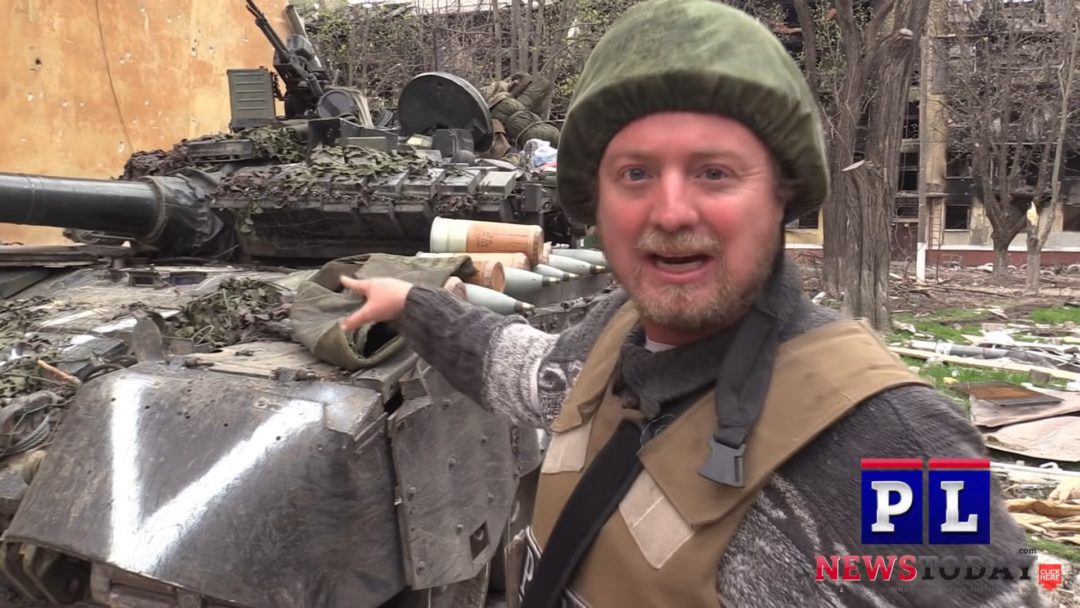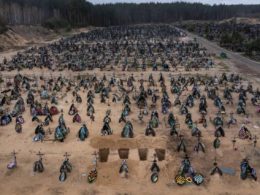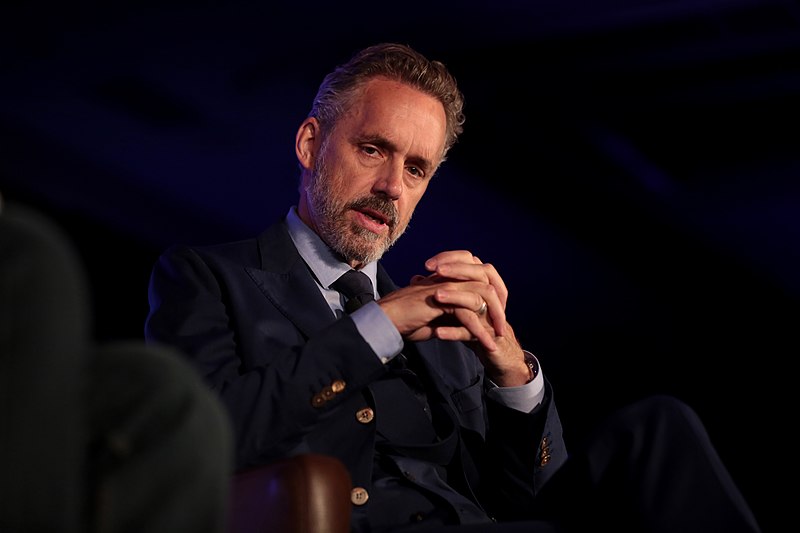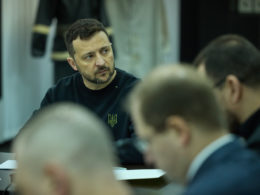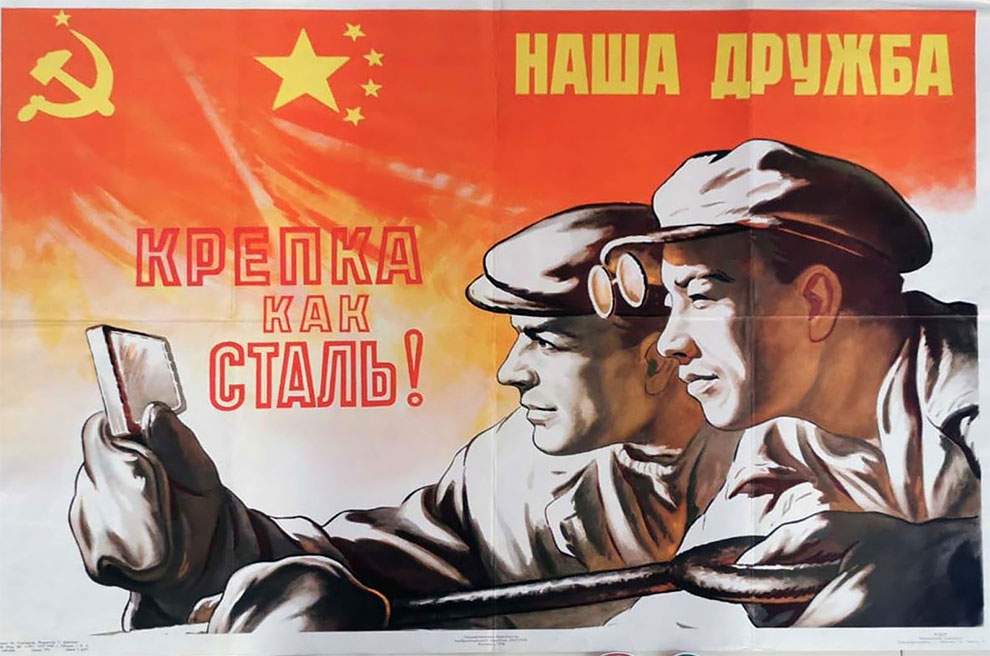Journalism plays a key role in the war in Ukraine. On-site reporting of the devastation and causalities wrought by the invading forces is vital in keeping the world’s attention on the conflict and rallying international support.
Foreign reporters have a unique position - they bring news to international audiences in their native languages and their foreign nationality lends them at least an appearance of impartiality.
Yet, a vocal minority of Western reporters portray Ukraine as extremist and warmongering while whitewashing Russia’s invasion. Positioning themselves as independent voices who do not conform to "Western mainstream propaganda," their depiction of the war mirrors the Kremlin’s narrative.
Their reach is not limited to the pro-Russian media bubble. This content is gaining traction on social networks and on alternative media outlets, pandering to the growing demand for anti-system voices.
However, scrutinizing their content and background reveals their own biases, fabulations, and in some cases, connections to the Russian state, uprooting their image as objective and impartial journalists.
Pro-Russian voices in the Donbas War
Although the war in Donbas received comparably less attention than the ongoing invasion, journalists like Graham Phillips, Patrick Lancaster, and Anne-Laure Bonnel were present in Ukraine already in the early years of Russian aggression between 2014 and 2015.
The Brit Graham Phillips came to the country as a journalist in 2010, though his content shifted to politics only after the Revolution of Dignity in 2013.
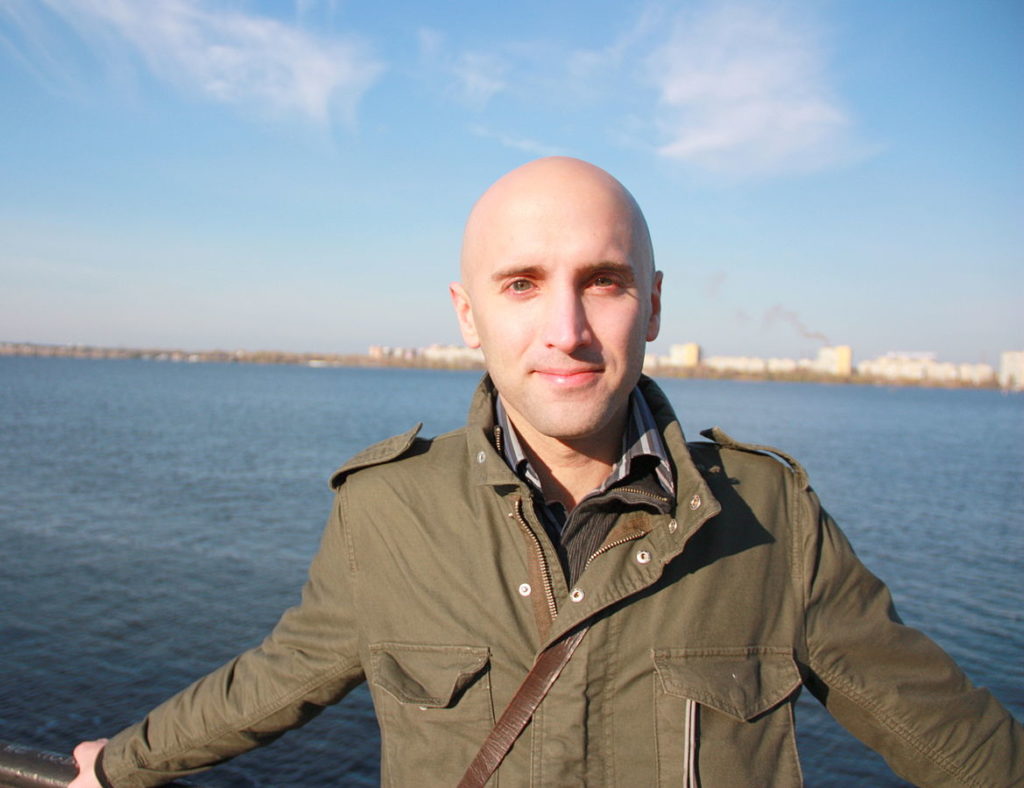
Denouncing the Revolution as a fascist coup opened a him a door to a cooperation with Russia Today. However, after inventing an incident with Ukrainian soldiers firing at him, he was banned from entering the country, rendering him useless to RT.
Instead, Phillips moved on to the Russian military outlet Zvezda. His activities soon left the confines of journalistic work, as photographs of him with a rifle in military fatigues indicate.
The Missouri-born Patrick Lancaster arrived in the country with a group of other freelance reporters in 2014. His increasingly one-sided pro-Russian coverage caused a split between him and his colleagues, and Lancaster began providing his content to the Russian media, including RT and Zvezda
. In one of his better-known segments, he contested the official investigation of the MH17 downing, shifting the blame away from Russia.
Unlike Phillips, who eventually left Ukraine, Lancaster settled down in occupied Donetsk, converted to Orthodox Christianity, and started a family with a local woman.
The French journalist and documentarist Anne-Laure Bonnel avoided working with Russian media. Nevertheless, her take on the war, namely her 2016 documentary Donbas, mirrored Moscow’s talking points. While claiming impartiality, Bonnel ascribed the suffering of the Donbas civilians primarily to the Ukrainian military. Her statements were often quoted by the Russian media and officials, including Foreign Minister Lavrov.
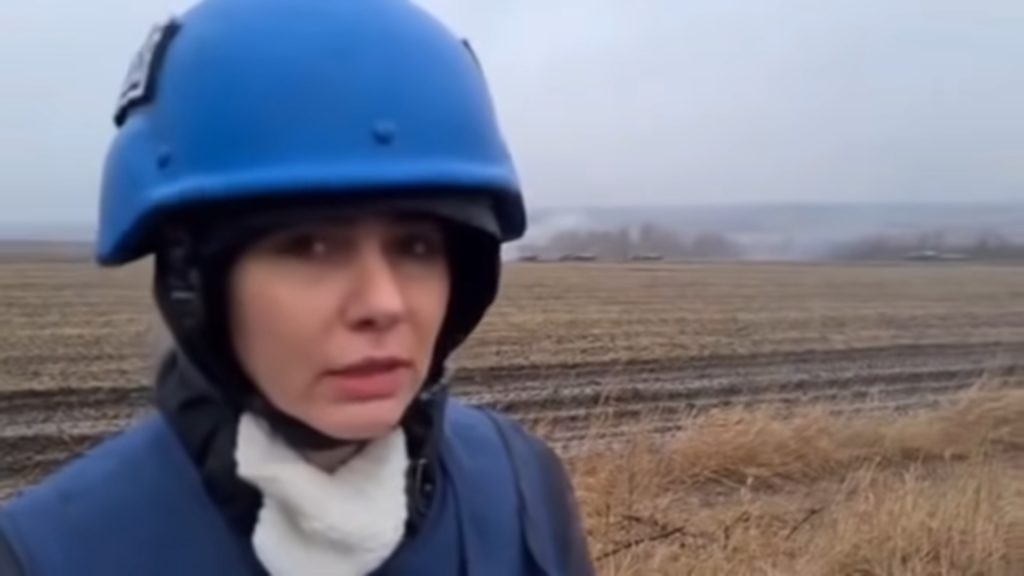
The world’s interest in Donbas remained low and was decreasing steadily. Bonnel left the country and moved to other hotspots like Nagorno-Karabakh, while Phillips continued in anti-Western and pro-Russian activism abroad and in the UK. Even Lancaster’s videos partially shifted to other topics. By 2022, that was about to change.
Returning to Ukraine
With the renewed invasion in February 2022, Russia-sympathetic journalists returned to the war zone.
Phillips reappeared in the country, this time working freelance through his YouTube channel. Lancaster followed Russian troops to the newly occupied territories, also officially as a freelancer publishing on YouTube.
Bonnel also returned to Donbas to cover the conflict while reiterating her old views.
Others arrived in Ukraine for the first time.
A Dutch journalist Sonja van den Ende revealed that she and a group of other reporters were invited to the Russian-occupied part of Ukraine by Aleksandr Dugin’s Eurasia Movement. Embedded with the Russian troops, they were to provide an "alternative" perspective to the Ukrainian and the Western media.
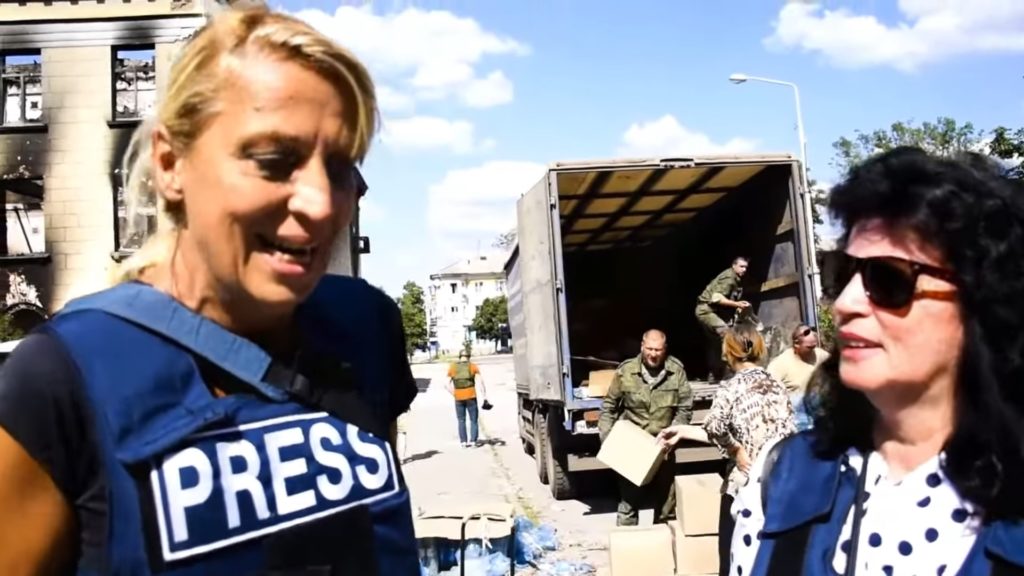
It is unlikely that any sources these reporters use are not approved by the Russian authorities. They usually interview the occupying troops, pro-Russian civilians, prisoners, or even other pro-Russian journalists.
As for Van den Ende, her own coverage follows the usual pattern, centering around Ukrainian "Nazis and war criminals." If fact, this is by far the prevalent topic for all Russia-sympathizing reporters.
Positioned near the war zone, the reporters focus on death and destruction supposedly wrought by the Ukrainian side. The given explanation for the Ukrainian rampage is neo-Nazism and violent Russophobia. The Azov Regiment often takes the central stage, serving as an embodiment of the entire "Nazi Ukraine" trope.
In comparison, the occupying forces seem to commit little to no transgressions, let alone war crimes and nurture good relations with the locals.
Many pro-Russian reporters have a background either in the armed forces or as war reporters in other conflicts, helping them to build credibility when covering the war.
Von den Ende previously worked as a reporter in Syria, while Bonnel covered the Nagorno-Karabakh conflict. Lancaster, himself a US Navy veteran, also covered Armenia at the time of the war in Karabakh.
Newcomer Frenchman Adrien Bocquet is yet another soldier-turned-journalist drawn to Ukraine, though, unlike his peers, reporting from the Ukraine-controlled territory.
Image of the "Good Samaritan"
Next to war-ruggedness, the foreign journalists like to build an image of a good Samaritan.
Phillips described himself as a British volunteer helping in Ukraine, while Lancaster records himself bringing humanitarian aid to civilians or helping
elderly. Bocquet also stated his mission to Ukraine was humanitarian in nature. Bonnel even compared herself to the Red Cross.
Their primary target audience seems to be in the West. This is indicated by a preference for "alternative" Western media and English-language (or other native languages) social media content, as opposed to Russian state outlets.
Even RT veterans like Lancaster and Phillips now work as freelancers. Where most of the aforementioned journalists gravitate are far-left, far-right, or conspiratorial publications, self-described alternatives to mainstream media.
For example, Von den Ende provided an interview to the New York-based Monthly Review, a far-left, anti-capitalist and anti-imperialist outlet. On the other extreme of the political spectrum, Lancaster appeared repeatedly on the far-right conspiratorial channel InfoWars.
The French right-wing channel CNews which regularly hosts Bonnel is known for its radical, anti-immigration stances. Incidentally, it is also the former employer of the unsuccessful far-right presidential candidate Éric Zemmour.
Rather than positioning themselves somewhere on a political spectrum, however, the goal is to find an anti-system platform where pro-Russian journalists can present themselves as persecuted fighters for truth. Bonnel was even compared to Julian Assange and she herself shared his photograph on her Instagram account.
Furthermore, many of these outlets enjoy a sizeable audience. For example, last month CNews enjoyed 15.3 million website visitors. Even the conspiratorial InfoWars reached almost 8 million visits per month.
Lancaster and Phillips gathered a large following around their social media platforms - 500,000 and 300,000 followers respectively.
Nevertheless, Russian official channels like to cite sympathetic Western journalists, bringing their content the Russian segment as well. In this case, foreign reporters aid Russian propaganda in justifying the war to the domestic audience, using their image of "impartial observers."
Genuine voices or propaganda amplifiers?
The image of independent journalists they have, to varying success, built around themselves, leads to a question -- can one look at them as a genuine, albeit biased voice, or are these reporters merely tools of Russian propaganda?
Direct links to the Kremlin are not always easy to ascertain. Many of the reporters in question work as freelancers and their income is mostly based on crowdfunding, making it difficult to track their donors. Others work with minor outlets from their home countries, which are likely also sources of funds.
There are exceptions. Phillips’ past cooperation with the Russian state media -- most importantly the military outlet Zvezda -- and his posing with a rifle in fatigues are indicative of his allegiance. In 2015, he even received a medal from the Russian Border Guard, a branch of the counter-intelligence agency FSB. Most recently, Phillips was put
on the UK sanctions list for serving as a Russian propaganda mouthpiece.
As for Lancaster, an investigation by Zaborona uncovers his links to the Kremlin’s high circles. Namely, his connection to Eric Kraus, a Putinist French businessman who is in turn close to Nikolai Patrushev, a secretary of Russia's Security Council a member of Putin's inner circle. Just as Phillips, the American reporter also used to cooperate with Russian state channels.
The threads leading from the American and the Brit to the Russian state are far too many and obvious. That is not the case for all of the journalists in question. In other cases, one needs to scrutinize the reliability and honesty of content.
For example, both Anne-Laure Bonnel and Adrien Bocquet spread a popular fabulation that in 2014-2021, the Ukrainian side killed 13,000-14,000 civilians in Donbas. Russian propaganda likes to operate with this number to substantiate the "genocide" claim of the Russian-speaking population.
By the UN's estimates, the Donbas War between 2014 and 2021 caused over 14,000 causalities total, "including 3,404 civilians, 4,400 Ukrainian forces, and 6,500 members of armed groups."
Adrien Bocquet’s story is particularly interesting, as he was reporting from the Ukraine-controlled territory. This did not stop him from using tropes that did not make much sense in his context, such as his constant encounters with Azov fighters, even in Western Ukraine which saw no ground combat. To justify this, he estimated the number of the "battalion" (sic) at 20,000. (Media estimates put the size of the Azov Regiment at 900-2,500 members.)
The Frenchman also claims to have been present in Bucha, where he witnessed war crimes committed by Azov fighters on Russian prisoners. However, StopFake.org discovered a number of contradictions that make his story unlikely. Most importantly, on the date when he apparently witnessed the war crimes, the town was safely in Kyiv's hands and no Russian troops were present.
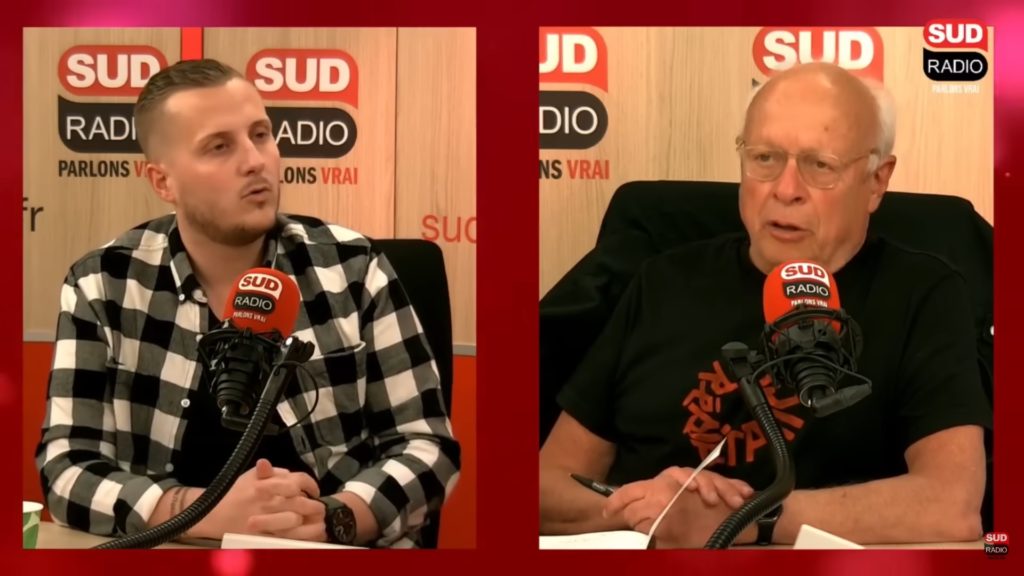
While Phillips was not present in Bucha, he nevertheless denied the possibility of Russians committing war crimes, basing it on his experience in Chernihiv Oblast. The Brit argued that after witnessing the "friendly" behavior of the occupying forces, it is most unlikely that the same army murdered civilians just several kilometers west.
The whole premise of this argument is false. According to Human Rights Watch, Russian troops committed numerous murders, rapes, and lootings in the Chernihiv Oblast as well.
When talking about Aslin, Phillips labeled him a "mercenary." This is untrue, since the British fighter enlisted with the Ukrainian Marines, making him a regular combatant in the country's military. The Russian side repeatedly talks about foreign military volunteers as mercenaries and refuses to treat them as regular prisoners of war. Aslin, as well as several other fighters, have been sentenced to death by the occupying authorities.
Van den Ende repeatedly denies Russian strikes as false flags and hoaxes. So far, the Dutch reporter already refuted the attack on the Zaporizhzhia Nuclear Power Plant, the strike on the Mariupol hospital, and the Bucha massacre, despite the abundant visual evidence of the opposite.
Manipulations in Lancaster’s reports are also worth exploring. In one of his videos, the American shows a charred vehicle with dead bodies inside. Although he presents the corpses as victims of a Ukrainian terrorist attack, according to Bellingcat’s research, wounds on the bodies indicate post-mortem autopsies. The attacks were apparently staged, with corpses from the morgue serving as terror victims.
It would be naïve and dangerous to discard any scrutiny of the Ukrainian leadership or military. However, one needs to examine the source of criticism, to distinguish between honest, critical journalism and amplifiers of Russian narratives. Lancaster, Phillips, Bocquet, and others display pro-Russian biases and parrot already debunked disinformation, identifying them clearly as the latter of the two.
Related:
- Russian propaganda TV threatens to invade West, carry out nuclear strike
- Babushka Z: Russia’s newest pro-war propaganda poster girl regrets waving red flag
- Russian propaganda in war: fake “fact-checkers,” far-right conspiracies, and distracted progressives
- A guide to Russian propaganda

